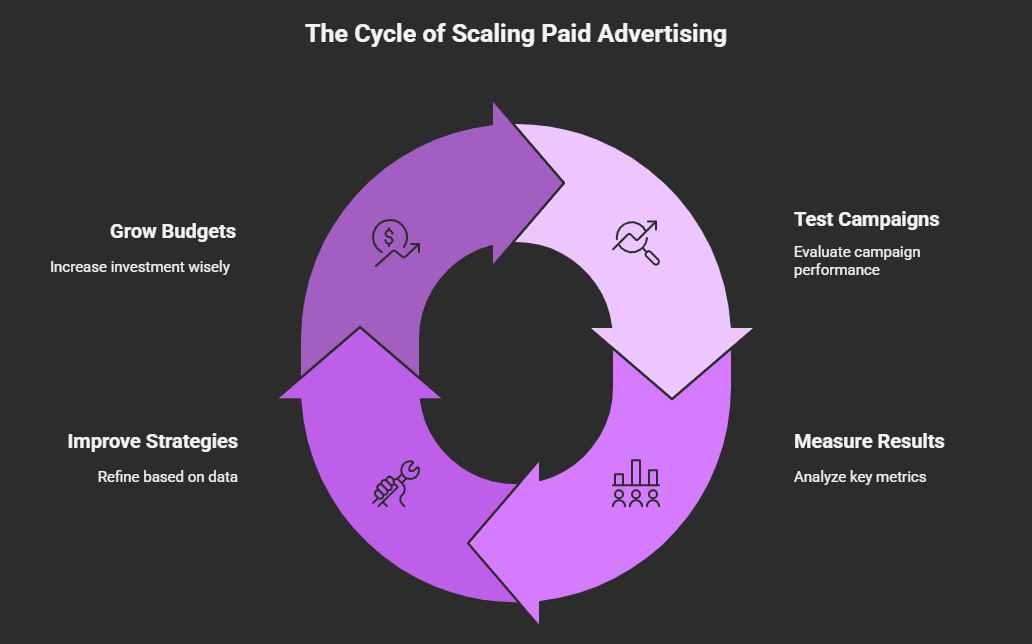Scaling Paid Ads Without Burning Budget: What Works

Ring the bells if you ever saw an otherwise good advertising program blow up as soon as the funds were allotted a higher figure. One day, it brings fabulous returns at 50 a day, and after pushing it up to 500, the cost per acquisition goes up by three times, and conversions do not even nudge the dial. Such a situation is a daily routine in digital marketing, and it frustrates marketers and causes budgets to run off.
The truth behind scaling paid advertisement is simple yet demanding: what works wonderfully at one level of the Budget tends to crumble at the other. The ability to scale successfully does not rely solely on increasing the amount of money to be spent but on adopting a strategic pattern according to which the growth of campaigns could be realized without compromising efficiency.
It is seldom luck that determines the methods that scale to the success or crash of campaigns.
Having examined many scaling actions of various industries, it is obvious that there are unambiguous schemes that effective marketers follow in addressing such a task. This makes the difference between the scaling heroes and those who ran out of options with maxed ad accounts and obtained little to nothing.
1. Know When You're Ready to Scale
Marketers believe they are ready to scale up most of the campaigns but are not. The thrill of a couple of good days usually leads to an untimely budget rise, leading to disappointment.
Scaling of campaigns needs to be avoided in case the CPA is not stable, winning creatives have not been well established and/or landing pages are not converting properly. These core questions do not vanish when further endowed with a larger budget. They are only increasing.
In successful scaling campaigns, you will see three important signals first: positive ROAS that consistently outperforms the goals by a consistent margin, low-grandfathered creative winners that show they are outperforming other content, a stable and consistent performance trend that lasts more than a day or two and instead shows a 7-14 days trend with strong performance.
Marketers have a bad tendency to look at a single great day and then proceed to scale, only to realize that it was somewhat of an aberration but not an indicative sign. The wait at this point helps to avoid major budgetary wastages down the line.
2. Scale What Works - Don't Start From Scratch
The greatest scaling opportunity lies exactly behind your eyes: the ad sets are already returning results to you. Smart marketers figure out the best-performing segments through segments using metrics such as CTR, CPC/CPA, and ROAS and only invest more in what is performing.
The best way to perform this is to conduct gradual budget increments, usually by 20-30 per cent after every few days, as opposed to dramatic leaps. This incremental process allows algorithms to be adjusted without plunging performance into mayhem. It is like increasing heat in increments rather than coming into boiling water.
Of great interest is that effective scalers do not feel the urge to experiment with things already running effectively. They replicate the winning formulas to the last detail without even realizing that doing so will only signal the deviation of the delicately balanced environment that produced such success in the first place.
3. Use a Testing Budget - Not Your Scaling Budget
The most advanced paid media practice ensures a distinct split between the test and scaling budgets. They usually dedicate around 10-20 percent of their advertising budget to testing new hooks, other forms of content (video, carousel, UGC), and other audience groups.
The importance of this division is that it provides breathing space to experiment without jeopardizing performance. Test campaigns have no immediate return on investment standards, whereas scaling campaigns have to meet predetermined criteria to continue getting investment.
In the absence of such a focused testing method, campaigns inevitably reach a peak at some point when fatigue occurs on the creative side. An ongoing testing pipeline ensures that when the existing assets start to wear out, there is already a new winner at hand to be scaled.

4. Choose Your Scaling Method Wisely
Scaling is done using different methods that are applicable in different situations. Vertical scaling (spending more money on current campaigns) also occurs more quickly, but there is a greater risk that the algorithm will be disrupted. Horizontal scaling (replicating successful adverts to different audiences or locations) is more stable, but more time is consumed setting up and managing.
The best scaling method usually integrates the two, shifting to horizontal growth as soon as vertical scaling yields diminishing returns. For example, having increased the daily Budget of a promoted campaign to $150 after trying it with a budget of $100, smart marketers would make copies of the winning creative to deliver to other geographical areas.
The correct direction is mostly based on the audience's scale and the campaign's goals. Broad audience campaigns are generally more vertically scaled and have less friction than niche audience segments, which are subject to saturation.
5. Use Rules & Automations to Save Budget
When campaigns get large, there is a reduced error margin. A performance problem in which an individual would spend $50 on a small scale will cost thousands at a larger scale. It is here where automation is important.
Scaling is dependent on guardrails in performance, such as:
- Pausing the ad sets to 30 per cent above the CPA target two days in a row
- Reduce total Budget per day in case ROAS goes under breakeven after 24 hours
- Adding up 20 per cent to the Budget in case ROAS is higher than 3x during 3 consecutive days
These rules can be regarded as 24/7 guardians of the campaign that defend money to ensure it does not decline on weekends or be exposed to a severe fluctuation in the market. They install a security blanket that takes issue when they no longer consume funds.
All the largest platforms have native automation functionalities, such as Automated Rules on Meta and performance modifications in Google Ads. You can get even more control and customization with third-party tools for more complex rules or cross-platform campaigns.
6. Optimize Your Landing Page First
Among the most ignored parts of scaling is what is done after clicking. Improving traffic to the landing page that does not convert wastes spending even more.
The math behind landing page optimization is convincing: assume paying 2 dollars per click and landing page converts 2 %, 100 dollars per acquisition. Simply get that conversion rate to as little as 3 per cent, and the cost reduces to only 66, a reduction of 34 % percent without altering the ads.

This leverage is equally boosted when campaigns are magnified. Granted, at even a $10,000 per month advertising expense, such a 1% increase in conversion rate saves you 3400 each month, frequently with significantly less effort than a constant refinement of ad creative.
Most scalable campaigns ensure that landing pages are conversion machines and then pump more traffic onto the pages. They test such elements as headlines, CTA buttons, the length of forms, and page speed until the conversion rates meet industry standards.
7. Don't Forget the Creative Burnout
The silent killer of scaling campaigns is ad fatigue. Engagement eventually declines as frequency rises, meaning that the same individuals see the same advertisements more than once. Not because the targeting is incorrect but because the audience has seen the advertisements too frequently; what worked at $50 per day frequently fails at $500.
Before scaling, savvy marketers create three to five iterations of high-performing creatives to prepare for this. Every seven to ten days, they add new assets to campaigns and carefully monitor frequency metrics (four or more usually indicates impending fatigue).
While keeping the main messaging that made the original advertisements successful, they concentrate on updating the most eye-catching components when making variations, such as news headlines, thumbnails, and hooks in the video's first three seconds.
This proactive creative refreshment extends campaign lifespans and supports sustainable scaling without the performance cliffs that plague static campaigns.
8. Track the Right Metrics (Not Just Vanity Numbers)
The pressure to show results increases along with budgets. This frequently results in an excessive focus on metrics that sound impressive but don't truly reflect the success of the company.
The metrics that directly impact bottom lines—CPA, ROAS, conversion rates, customer lifetime value to CAC ratio, and CTR as a leading indicator—are the focus of the most successful scaling initiatives. Pure volumetric metrics, such as impressions, reach, or raw click volume, are considered less.
More significantly, instead of obsessing over daily variations, they monitor the long-term trends of these crucial metrics. Compared to day-to-day numbers, which can be greatly impacted by the time of day, algorithm learning, or even weather events, a 7-day rolling average offers far clearer signals.
9. Stay Calm. Don't Scale Emotionally
Emotional discipline is the most underappreciated component of successful scaling. The digital marketing equivalent of "letting it ride" at the casino is the natural tendency to drastically increase spending immediately when campaigns are successful.
Almost invariably, this sentimental approach to scaling fails. Methodical, data-driven strategies that set clear guidelines before scaling starts yield the most reliable results (e.g., "20% budget increases every 3 days as long as ROAS stays above 2.5x").
New budget levels can operate for at least three to four days before evaluation if scaling is done successfully. In the first 24 to 48 hours following a budget increase, what appears to be subpar performance might be the learning phase. Panic causes many potentially successful scaling attempts to be prematurely abandoned.
10. Creative Is Still King
The most important performance lever in digital advertising is still creative quality, even though scaling methodology is crucial. Tactical optimization cannot compensate for advertisements that don't pique interest or generate desire.
The most effective scaling operations combine ongoing creative innovation with systematic budget management. To develop new ideas, test formats native to each platform, and use real customer language from reviews and testimonials, they regularly conduct creative sprints.
A flywheel effect is produced by this dual focus, whereby improved creativity leads to improved performance metrics, facilitating further scaling, which in turn funds further creative development.
The Balanced Approach to Scaling

Successful marketers know that scaling paid advertising is a continuous process of testing, measuring, improving, and growing rather than a one-time budget increase. This methodical approach produces something far more valuable - sustainable growth - than the thrill of suddenly doubling budgets.
To create scaling machines that increase daily spending from hundreds to thousands without destroying return on investment, marketers must know when campaigns are truly ready to scale, concentrate on what is already working, keep separate test budgets, choose appropriate scaling methodologies, use automation, optimize landing pages, refresh creative, track meaningful metrics, maintain emotional discipline, and keep innovating.
This systematic approach is crucial in an environment where scaling failures are much more frequent than scaling successes.



